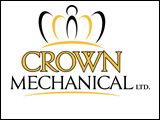What is Collagen?
- It is the single most abundant and key structural protein in the human body (making up 1/4 of total protein).
- The “glue” that holds the body together.
- Building block for all our body’s major systems.
- It is found in cartilage, ligaments, skin, bones, tendons, muscle, teeth, intestines, nails, eyes, blood vessels and hair.
- There are 28 types of collagen in the body, but 80-90 percent in the body consists of types I, II, and III.
- As we age collagen production declines (roughly 1% lost per year starting in our early 20s). Women in menopause are especially susceptible (up to 30% lost in 5 years).
Types of Collagen:
Collagen Type 1&3 and Type 2 each have different amino acid profiles and are produced by different cells in the body.
Types 1&3 is produced by fibroblasts (connective tissue cells) and osteoblasts (bone cells). They make up the majority of body’s total collagen supply and are the main collagen constituents in the skin, hair, nails, ligaments, dentin (teeth), tendons, intestines, uterus, blood vessels, bones and muscles. Type 1 is the most abundant form in the body and Type 3 is the second most abundant form, often found alongside Type 1. Type 3 collagen yields gelatin when boiled or hydrolysed!
Type 2 is produced by chondrocytes (cartilage cells). It provides essential nutrients for joint support. Needed to maintain and rebuild cartilage tissue (helps with swelling, mobility and cushioning). Collagen Type 2 makes up 50% of all protein in cartilage!
Benefits of Collagen:
- Supports muscle mass and healthy body composition.
- Reduces appearance of cellulite.
- Support skin elasticity, firmness and sun protection.
- Improves wound healing.
- Protects joints (compliments fish oils, glucosamine, chondroitin, NEM, MSM, Boswellia, curcumin and hyaluronic acid well!)
- Supports bones.
- Supports gut.
- Improves sleep quality.
The Methionine/Glycine Imbalance
According to holistic nutritionist Nelson Narciso, collagen intake helps combat methionine/glycine imbalance in the diet. Traditional diets used to consume more collagen as they would eat the “whole” animal (organ meats, skin, tendon, gristle/cartilage, bone, gelatinous cuts). He states that the common protein foods we consume today (i.e. muscle meats, eggs) are rich in the amino acid methionine and low in glycine. Excess methionine intake increases homocysteine levels, which is associated with increased risk of cardiovascular disease, osteoporosis, etc. Additional glycine intake will help even out the imbalance created when consuming high levels of methionine from the diet. Nelson states that collagen is probably the best source of glycine. He adds that in addition to not consuming enough glycine, many people are also consuming things that deplete glycine such as the food preservative, sodium benzoate.
What Happens When We Have Insufficient Collagen?
Skin sags, bones lose density, muscles ache, joints and ligaments become weaker and less elastic. Cartilage becomes thinner and weaker at the joints it is supposed to cushion. Hair loses its thickness and wave and breaks easily. Organs may sag toward the floor, and sphincters weaken. The heart enlarges, arteries become less elastic, and less resistant to plaque formation.
Suggested Supplements:
1) Hydrolyzed Collagen Supplement – Collagen protein provides the essential amino acids necessary for connective tissue formation. The process of hydrolysis breaks down collagen into small fragments to enhance absorption in order to provide optimum bioavailability (so your body can best use it!) Look for a source from pasture-raised animals that are free from of both antibiotics and added hormones.
2) Building Blocks for Collagen Production: Silica, Biotin, Sulfur, Vitamin C & Zinc
3) Antioxidants – support & protect damaged fibres, inhibit enzymes that break down collagen.
Bonus: Collagen lacks the amino acid tryptophan. Look for a product that adds this ingredient in order to make it a complete collagen!



